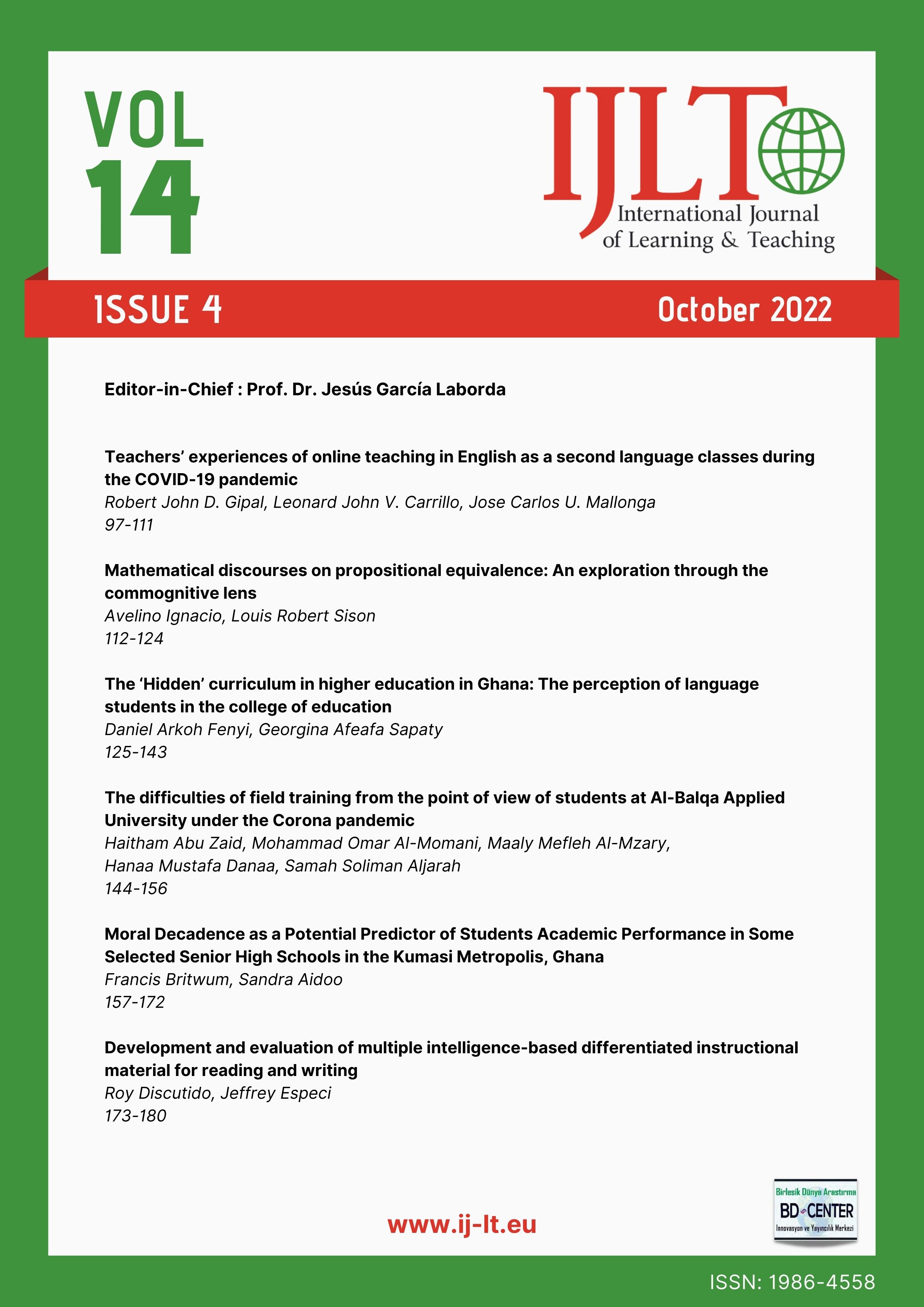Mathematical discourses on propositional equivalence: An exploration through the commognitive lens
Main Article Content
Abstract
This paper describes the mathematical learning of purposively sampled second-year Bachelor of Secondary Education mathematics majors from a state university in Bulacan province on propositional equivalence concept within the Logic and Set Theory course via a commognitive lens. This small-scale study employed exploratory qualitative research with one class recording, one focus group, and select activity outputs. Four participants in the focus group were sampled based on commognitive conflict occurrences. The teacher-researcher operated as a co-participant in the mathematical discourse. The dean's approval and participants' informed consent were observed, explaining the research objectives and confidentiality scope. The findings present accounts and descriptions of participants' mathematical discourses through the commognitive lens: word use, visual mediators, endorsed narratives, and routine practices that describe Logic and Set Theory discourses on the propositional equivalence concept from a participationist's learning standpoint.
Downloads
Article Details

This work is licensed under a Creative Commons Attribution 4.0 International License.
Authors who publish with this journal agree to the following terms:
- Authors retain copyright and grant the journal right of first publication with the work simultaneously licensed under a Creative Commons Attribution License that allows others to share the work with an acknowledgement of the work's authorship and initial publication in this journal.
- Authors are able to enter into separate, additional contractual arrangements for the non-exclusive distribution of the journal's published version of the work (e.g., post it to an institutional repository or publish it in a book), with an acknowledgement of its initial publication in this journal.
- Authors are permitted and encouraged to post their work online (e.g., in institutional repositories or on their website) prior to and during the submission process, as it can lead to productive exchanges, as well as earlier and greater citation of published work (SeeThe Effect of Open Access).
